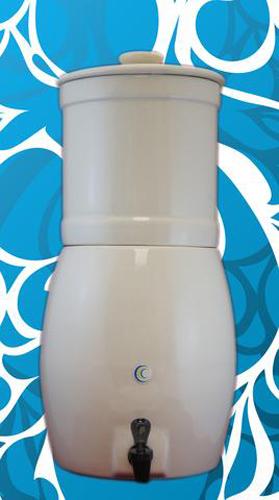
Filtration in Ancient Egypt
Some of the earliest depictions of water filters are, predictably, from ancient Egypt. As a civilization that lasted several thousand years and was based around life-giving water in a desert, gained from the tropical and highly polluted waters of the Nile, it is only natural that the land of the Pharaohs should have made use of filtration. Tomb paintings show stacked wooden shelves of jars connected by some sort of slim tubing.
Other paintings show similar devices being used along with siphons being used by two shaven-headed Egyptians to draw water through the jars and into a large basin. Though the details are not specified in the depiction, it seems likely that the jars are filled with sand or some other early filtration medium to remove debris and contaminants for purer drinking water.
Other Early Attempts
Hippocrates, the famous Greek doctor who lived in, probably, the 5th century B.C., recommended boiling water and then filtering it through fine cloth to remove particulate matter and the foul tastes and smells it causes. Though cloth had undoubtedly been used for filtration before, Hippocrates owns the distinction of being the first recorded person in history to deliberately use a particulate matter filtration medium to improve the aesthetic qualities of drinking water!
Sand water filters came into use during the European Renaissance of the 15th and 16th centuries, and their use gradually spread over the following centuries. Military filtration was often at the cutting edge of filter technology due to large numbers of men being concentrated in a tiny area when an army was encamped.
Modern Water Filtration Begins
Municipal water treatment – using large, sophisticated versions of the earlier sand water filters – began around 1800 in Scotland, and shortly thereafter in England. Successively more sophisticated ceramic water filters were also invented during the 19th century, often encouraged by research money from the British Crown, which was seeking to protect both its densely packed citizenry and the far-flung armies that defended its empire.
It is a fascinating and slightly depressing byline to the history of water filtration that it was not believed by most people that water could be made fully safe by filtration until the mid-19th century. Since it was thought that microbes would spontaneously generate in any water, it was deemed useless to attempt purification. The history of water filtration might have been very different if this idea had not become so entrenched in the human mind for millenniums, yet it did, and it is only in the 20th century that complete and sophisticated water filtration systems came into their own.


Share:
Countertop Water Filters versus Under-Sink Water Filters
Your Shower Had Never Been So Clean and Healthy!